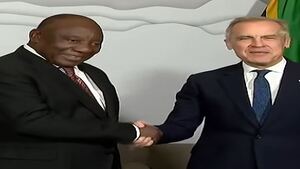The agreement, developed under the auspices of the WHO, represents a generational accord to strengthen international collaboration and equity in addressing global health threats.
WHO Director-General Tedros Adhanom Ghebreyesus hailed the achievement as a historic moment.
“The nations of the world made history in Geneva today,” he said.
“In reaching consensus on the Pandemic Agreement, not only did they put in place a generational accord to make the world safer, but they have also demonstrated that multilateralism is alive and well. In our divided world, nations can still work together to find common ground and a shared response to shared threats.”
Negotiations for the agreement began in December 2021 during the height of the COVID-19 pandemic, when WHO Member States recognised the urgent need for a legally binding international instrument.
The Intergovernmental Negotiating Body was established to lead the process, which involved 13 formal rounds of negotiations, many extending into the early hours, culminating in Wednesday’s consensus after a final overnight session.
The draft agreement outlines key measures, including a commitment to a “One Health” approach to pandemic prevention, the establishment of stronger national health systems, and the creation of a globally coordinated supply chain and logistics network for health emergencies. It also proposes a new pathogen access and benefit-sharing system, increased support for technology and knowledge transfer, and the development of a skilled, multidisciplinary health emergency workforce.
The agreement will now be submitted for consideration at the 78th World Health Assembly in May, where Member States will decide on its adoption. If ratified, the accord is expected to serve as a cornerstone for global health security, ensuring a unified and equitable response to future pandemics. This milestone underscores the power of multilateralism in addressing shared challenges and safeguarding humanity’s future.
--UN/ChannelAfrica--













